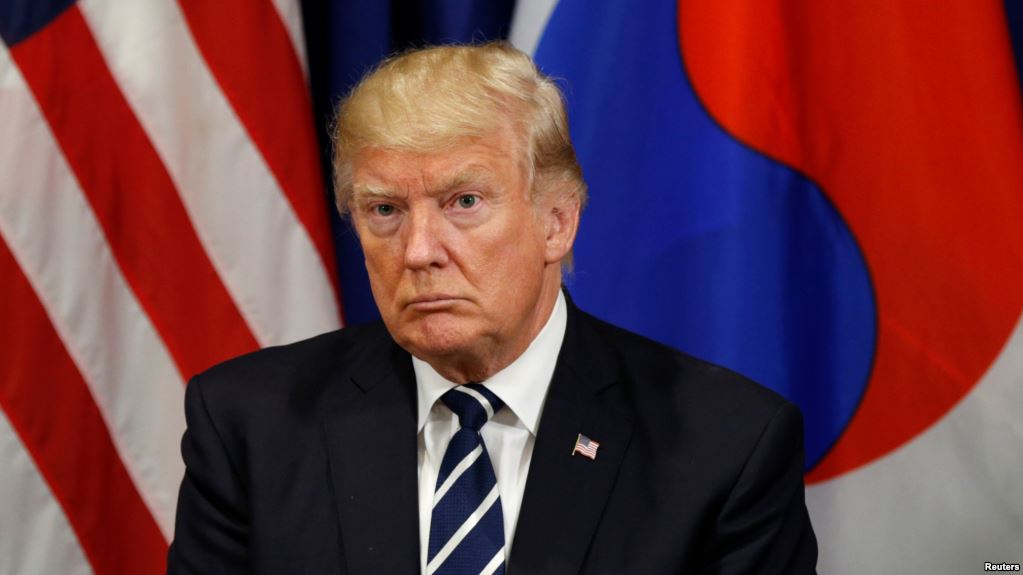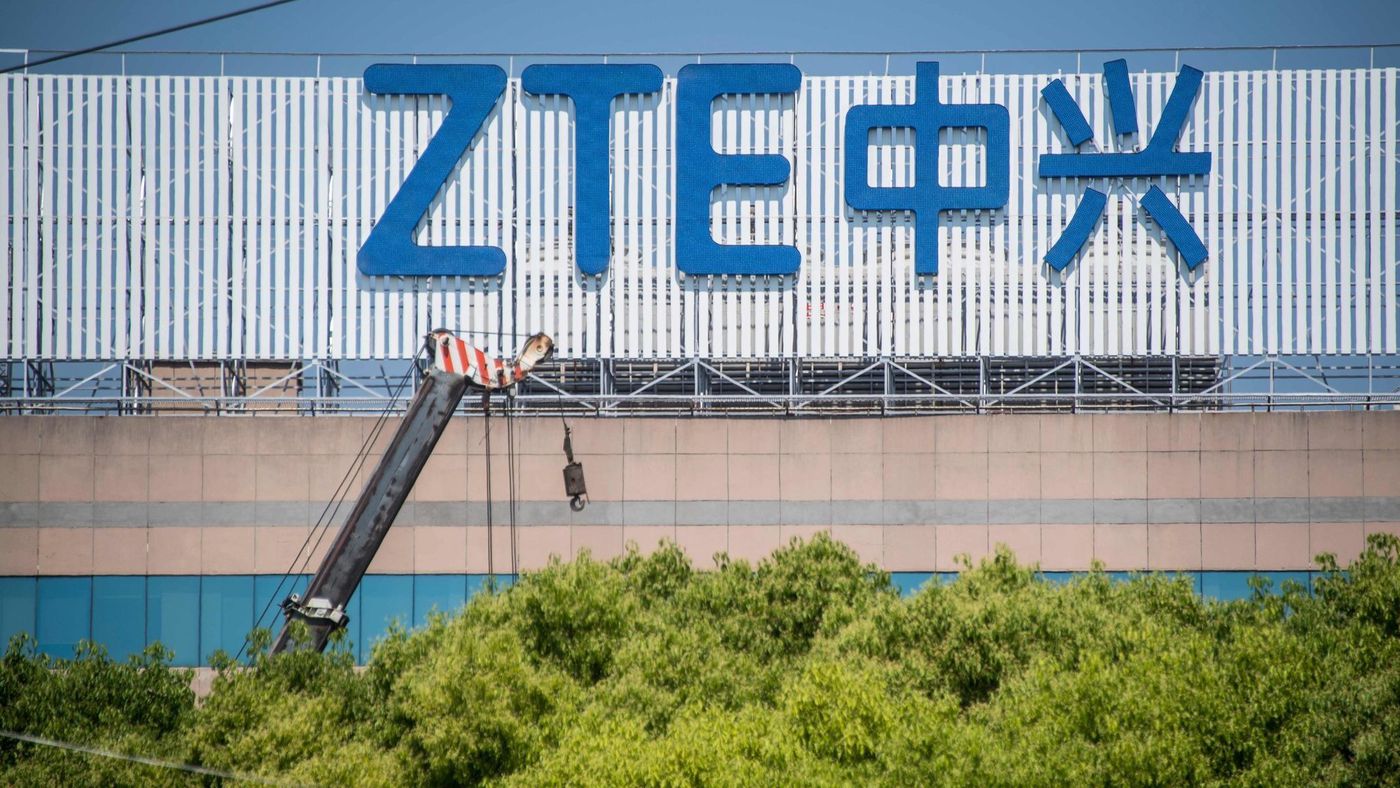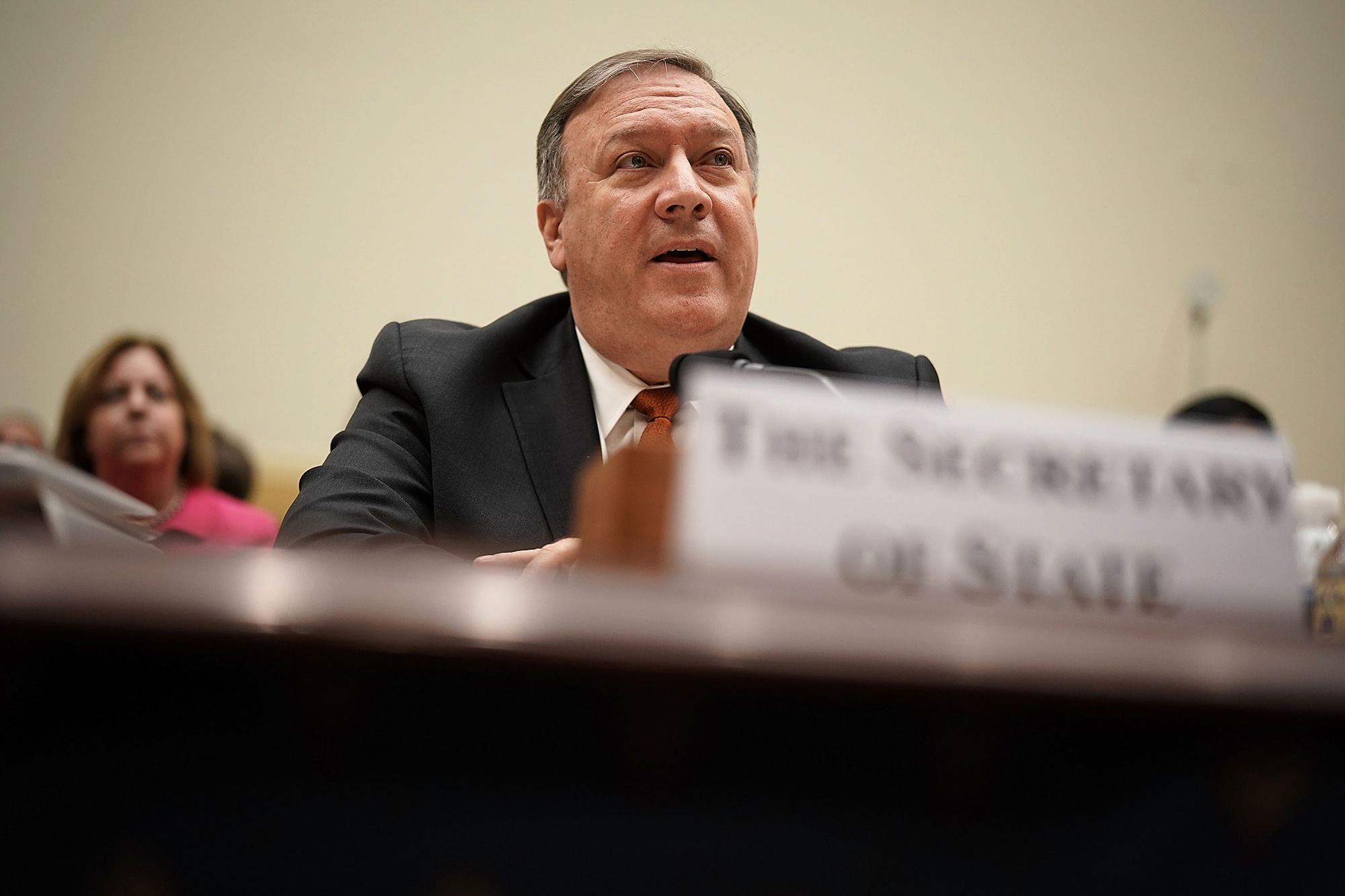
 Trump Cancels North Korea Meeting
Trump Cancels North Korea MeetingFor a brief period of time, it appeared that North Korea's roguish leader might be ready to play by the international rules. But this precarious optimism - fueled by Kim's decision to engage in official talks with various international parties, release American detainees, and destroy the country's nuclear testing site - was dampened by an about-face.
After Pyongyang abruptly pulled out of talks with South Korea, adopted a set of hardened demands for negotiations on its nuclear capabilities, and directed a slew of characteristic denigrations toward the U.S., President Trump on Thursday canceled a long-awaited summit between the two countries. In what some from the Trump administration have called a "high-risk, high-reward" scenario, some believe that the U.S. president acted quickly to cut the cord before Kim could do so himself. However, allegations that China may have "sabotaged" the talks threaten to exacerbate existing tensions between the world's largest economic powers.
Several administration officials and outside experts have claimed that China may have emboldened Kim Jong Un to change his tone towards the Singapore meeting. According to this narrative, China has long viewed North Korea as a buffer between itself and U.S. forces in South Korea, and was growing increasingly anxious over being sidelined as tensions between North and South cooled. Further, China stands to benefit in the immediate term from the meeting's cancellation, as it puts China in the "driver's seat" with regard to any DPRK negotiations moving forward, and allows President Xi to use his influence with North Korea as leverage while Beijing negotiates a trade deal with Washington.
The view that China was working against the summit appears to be shared by President Trump, who hinted last week that he "partly blames China for how summit preparations went awry." He added that President Xi Jinping might be 'influencing' Kim after the North Korean leader made two visits to China in quick succession.
However, some scholars and commentators have articulated doubt over this reading of events. According to Douglas H. Paal, a vice president at the Carnegie Endowment for International Peace, "Blaming the Chinese for the change in tone from North Korea strikes me as trying to find a Chinese scapegoat for a summit failure.
China also denies these allegations, and continues to call for diplomatic negotiations between the DPRK and the U.S. The Foreign Ministry said on Friday that "the government would keep encouraging the United States and North Korea to have direct talks, describing such communication as having a 'pivotal' role in denuclearization."
Nonetheless, as stocks tumble and the world stands on edge over the roguish nation's potential next moves, the canceled summit could ultimately mark a split between China and the United States over how to deal with North Korea and its nuclear arsenal, adding fuel to simmering tensions over trade, the disputed South China Sea, and allegations of a sonic attack which caused injury to a U.S. diplomat in Guangzhou.
 Trump Administration Seeks a Deal for ZTE
Trump Administration Seeks a Deal for ZTEThe Trump administration is putting pressure on Capitol Hill this week to support a deal to roll back penalties on Chinese telecommunications giant ZTE, which was under fire for violating U.S. sanctions and shipping U.S. telecom parts to Iran.
ZTE had previously plead guilty to this charge, agreeing to pay over $1 billion in fines, and last month, the Commerce Department banned U.S. companies from selling their materials or providing services to ZTE for seven years. This has severely impacted ZTE's operations, cutting off vital supply lines, with some speculating that it would go out of business.
The Trump administration has already stated that the U.S. and China have agreed on a framework that would allow U.S. companies to once again sell components and software to ZTE. The deal would require ZTE to change their leadership and their board, as well as hire American compliance officers. In addition, Beijing would remove tariffs on billions of dollars of farm products.
Trump's May 13 Tweet stating his support for working together with ZTE, with "too many jobs in China lost," reportedly caught key advisors off guard, after the administration's strong rhetoric against the Chinese company.
ZTE will likely be a sticking point as Commerce Secretary Wilbur Ross prepares to head to Beijing on June 2 for trade talks with China's chief economic envoy Liu He.
However, U.S. lawmakers have resisted any resolution, stating that ZTE remains a security threat. Treasury Secretary Steven Mnuchin and Secretary Ross met with top Republican senators on Wednesday to assure them that the ZTE negotiations were being treated as a national security issue.
ZTE is currently the fourth largest provider of smartphones in the U.S. The company had also been closely watched because of its ties to the Chinese government - Shenzhen Zhongxingxin Telecommunications Equipment, a Chinese state-owned company, is its majority stakeholder.
 Secretary of State Mike Pompeo Says Illness is 'Similar' to That in Cuban Attacks
Secretary of State Mike Pompeo Says Illness is 'Similar' to That in Cuban AttacksAfter a U.S. consular worker fell sick in the southern Chinese city of Guangzhou, suffering from minor brain trauma, Secretary of State Mike Pompeo on Wednesday told a Congressional panel that the U.S. citizen experienced symptoms that were "entirely consistent with" those experienced by 24 embassy staffers and family members in Cuba. He also said that a medical team was dispatched to the Southern port city to investigate the incident.
"We are working to figure out what took place, both in Havana and now in China as well," Pompeo said.
The U.S. issued a health alert to Americans living in China, and the State Department described the employee experiencing "subtle and vague, but abnormal, sensations of sound and pressure." The employee's symptoms started late last year and persisted through April this year.
China has dismissed the claims, with Foreign Ministry spokesman Lu Kang stating that China protects the security of foreign organizations and personnel. "China has already conducted an earnest investigation and we have also given initial feedback to the U.S. side," Lu said. "At this point, we have not yet found any reason or clue leading to the situation described by the U.S."
Chinese Foreign Minister Wang Yi stated that "We don't want to see that this individual case would be magnified, complicated, or even politicized."
The incident arrives in the midst of heightened tensions in the U.S.-China bilateral relationship, with the cancelation of the North Korea meet and delicate trade negotiations next week, and the claim will likely add another bump in the road.
When 24 personnel at the U.S. consulate in Cuba were sickened from a so-called "sonic-attack" in 2016, the U.S. withdrew most of its embassy personnel from Havana and expelled 15 Cuban diplomats from the U.S. Symptoms included dull headaches, tinnitus, vertigo, disorientation, nausea and fatigue. Senator Marco Rubio had dismissed Cuba's claims that they were unaware of the "attack," saying that it is "impossible." He and others have also claimed that Cuba had direct knowledge of the perpetrator of the attack, but the cause of the sicknesses has not yet been determined.
 China's Military Growth in PerspectiveIn recent years, China's military growth has raised some concerns among neighboring Asian nations, especially in the hotly-contested areas of the East and South China Seas. China's military budget saw an 8.1 percent increase this year, bringing it to 175 billion USD. But how does China's spending compare to others, including the United States? In this new video, China-US Focus examines China's military capabilities and technological advancement with an eye to the regional perspective. View the video here.
China's Military Growth in PerspectiveIn recent years, China's military growth has raised some concerns among neighboring Asian nations, especially in the hotly-contested areas of the East and South China Seas. China's military budget saw an 8.1 percent increase this year, bringing it to 175 billion USD. But how does China's spending compare to others, including the United States? In this new video, China-US Focus examines China's military capabilities and technological advancement with an eye to the regional perspective. View the video here.
Prepared by China-US Focus editorial teams in Hong Kong and New York, this weekly newsletter offers you snap shots of latest trends and developments emerging from China every week, while adding a dose of historical perspective.
- 2018-05-18 The On/Off Trump-Kim Summit
- 2018-05-11 American Goods Are Stuck at Chinese Ports
- 2018-05-04 China and the U.S. Lay Trade Demands on the Table
- 2018-04-27 U.S. Delegation Will Visit China Next Week
- 2018-04-20 China and the U.S. Seek Allies in Trade Dispute
- 2018-04-13 President Xi Reviews the PLA Navy
- 2018-04-06 China and Russia Pledge Military Cooperation in a Signal to the United States
- 2018-03-30 Kim Jong Un Visits Beijing on First Overseas Visit
- 2018-03-23 President Trump Asks for Tariffs on Around $50 Billion Worth of Chinese Imports
- 2018-03-16 Tillerson to be Replaced by Mike Pompeo as Secretary of State
- 2018-03-09 President Trump Agrees to Meet Kim Jong-Un
- 2018-03-02 U.S. Imposes Tariffs on Chinese Aluminum
- 2018-02-23 A Week of Developments Related to North Korea
- 2018-02-16 Cui Tiankai says U.S. Should Not Advocate Confrontational Strategy Towards China
- 2018-02-09 China Releases the “No.1 Central Document” Containing New Rural Policies
- 2018-02-02 Wang Qishan Appointed to the National Legislature
- 2018-01-26 New Edition of the Focus Digest
- 2018-01-19 South Korea and North Korea to Compete Together at the Winter Olympics
- 2018-01-12 U.S. House of Representatives Passes Taiwan Bills
- 2018-01-05 U.S. Rejects Sale of Moneygram to China’s Ant Financial